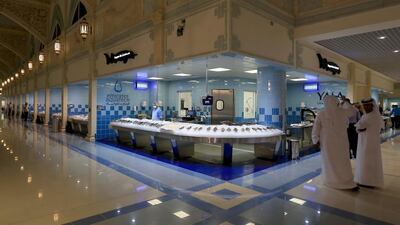With regard to your story about public buses from nearby Sharjah not being allowed to enter the neighbouring emirate of Umm Al Quwain (Passengers demand answers to UAQ bus ban policy, May 1), I drove through there today and noticed the absence of buses on the roads.
But what I found particularly alarming was the number of vehicles on the road – far too many – which one can understand because of the lack of viable public transport.
Whenever there’s a lack of public transport, it causes congestion and congestion increases our carbon footprint.
Randall Mohammed, Dubai
Really transportation is a huge problem for people living in Umm Al Quwain.
Khurshid Ahmed Tanoli, UAQ
Why is Umm Al Quwain being ignored?
Miles Trethewey, Fujairah
Real Islamists don’t recruit children
Your story, The scandal of children lured to war in Syria by Islamist rebels (May 1) made for horrifying reading and particularly the assertion that children are being hired to kill by Islamist rebels.
I think it is time that we stop calling these people by the name of Islamists and instead we ought to call them what they are: murderers and terrorists.
Everyone knows that what those people are doing, and the suffering they bring to so many, have nothing to do with Islam or being Muslim.
Islam does not promote hiring children to kill others. Islam promotes peace among all people.
Brigitte Von Bulow, Abu Dhabi
Market arrival gets a warm welcome
It was good to read your story, The Market at Mushrif Mall opens 200 shops selling fish, meat and fruit (May 1), because this is something for which I have been waiting for a long time.
I am really excited that it has finally arrived.
Patricia Geiger, Abu Dhabi
This is an excellent initiative and I hope it’s similar to farmers’ markets I’ve been to in Canada.
While they’re not as fancy as this one in Abu Dhabi, the food they sold was second to none.
Name withheld by request
Public has a role in improving driving
With regard to your story, Three injured in Dubai after driver swerves across seven lanes of traffic (April 30), the proper procedure is to check your mirrors, signal your intentions and then change lanes.
But 80 per cent of the drivers I see do not signal, they change lanes at the last minute, do not maintain a safe distance from the vehicles around them, and have no clue about roundabout etiquette.
They also regularly cut lanes, overtake and drive on hard shoulders and exceed the speed limit.
There has to be an answer to this.
Jayadevi Machaya Palekanda, Abu Dhabi
The police need to crack down on this kind of driving.
If there are no police nearby when other drivers see this, they should record people who break the law by driving recklessly and pass the details to the police.
Ziggy Darwish, Dubai
Students’ input will boost energy prize
Your story, Richard Branson pitches for UAE energy prize (April 29), was good to read.
The appeal from Sir Richard, one of the jury members for the prestigious Zayed Future Energy prize, for more university students to participate in the contest was laudable.
Students are the future assets for a country’s growth in the education and energy areas. I hope this time more students in the UAE will participate.
K Ragavan, United States
Choosing tolerance over isolationism
Some people have been comparing the two attacks in London to the case of James Kottak, the drummer jailed in Dubai for insulting Islam.
No one was physically hurt by the drummer’s actions and he was punished. Nobody’s country is perfect and instead everyone living in the UAE – Emirati or expat – should be grateful the rulers chose tolerance over isolationism.
Name withheld by request
Defence proposal is based on fear
Having read your article about the security conference, Action must be taken for Gulf security amid growing threat of missiles (April 28), I fail to see where this missile threat will come from.
Or is this just an attempt by vendors to create a perception that will lead to the purchase of more defence equipment?
Name withheld by request

